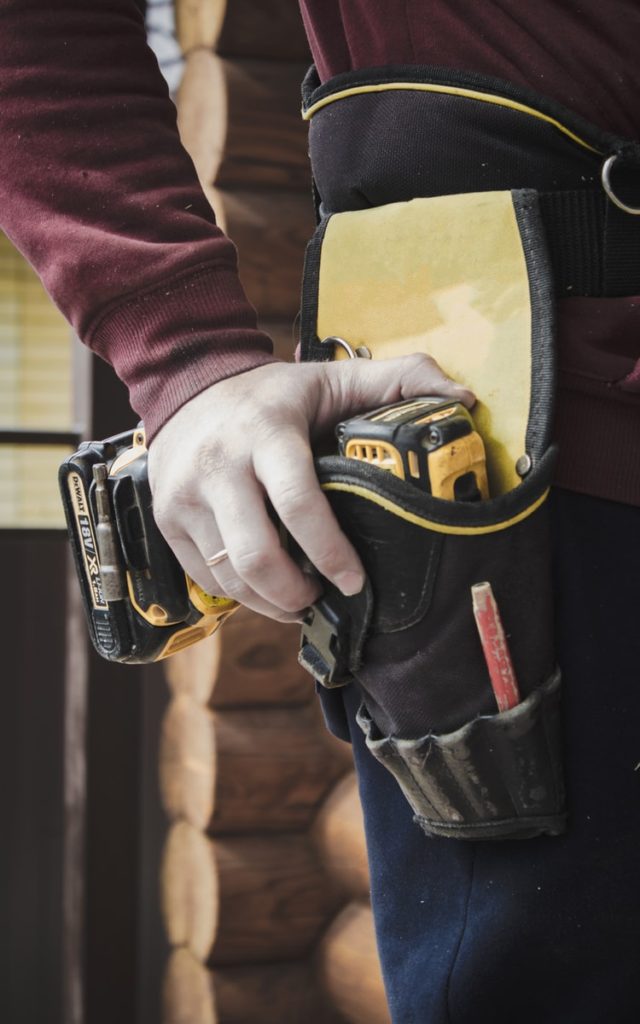
Self-Producing Theatre: The Fear of doing it yourself
Self-producing theatre requires special skills … I mean … there’s no way I could be the producer, right?
The Fear of Self-Producing
For many performers, creatives and artists, producing your work may seem terrifying. Thoughts like “I’m no good with numbers”, “I don’t know enough to do that”, and “where would I even start” run through their brain like a river in flood.
The idea that self-producing theatre is beyond an artist’s capabilities is so pervasive in the performing arts that anyone who works as a producer is usually so busy they can’t take on more projects.
Any artist is probably familiar with these thoughts, even in their primary discipline, which means they also know how to beat them. They break things that scare them into small tasks, attack them one at a time and work hard.

In this same way, almost anyone can become an effective self-producer, and you probably already know more about the job than you think. (When I say ‘almost anyone,’ there are people who won’t be effective producers, and I’ll talk about that at the end).
So before we go any further, let’s take a good look at where you are now.
Why are you doing this?
There are many reasons people choose to produce. It can be a rewarding job which delivers a sense of achievement. There is nothing like the feeling of realising, on opening night, that the show wouldn’t have happened without your hard work.
It can also be challenging, underappreciated and lonely. Without a dedicated team to share the load and offer support, you will often find yourself doing a lot of work alone. It can also be hard to interest the artistic team and performers in the organisational things that make a show happen.
So, finding an answer to the question, ‘why are you doing this?’ can help you get through the tough stuff.

If you know why to want to be a producer, then good for you. Move on if you like, but I suggest you still ask yourself the question before you do. You can never have too many reasons.
I was not a person who knew why. My start as a producer came as part of a group of actors who didn’t want to sit and wait for a job and began creating work.
The others in the team had a lot of skills, but I was the one with the ability to see the big picture and put the puzzle pieces in the right place. I always joke that I fell into the role because I could add 2+2 and not get 5?
If you are like me and fell into the job, you might have to dig to find your answer.
Ask yourself:
- Do you have relevant skills? Can you add 2+2 and not get 5?
- Are you a director who wants people to see your work?
- Are you a teacher prioritising the educational outcome for your students?
- Have you watched other productions and thought, “I could do better”.
- Do you just need to get the job done so you can enjoy other parts of the production?
It is okay if you didn’t choose this job. Someone always needs to do the dirty work. “I don’t want to do this job at all, but someone has to” is a legitimate answer, so long as you can find a reason, it will be worth it!
I’ve had a love/hate relationship with producing at times, but there is always a reason to keep going. You must find that reason.
If you can’t find a reason, you’ll likely not make an effective producer.
What do you know?
Many prospective producers are in a hurry to start. They have a project they are burning to realise. Others wonder how they ended up with the job, terrified that they don’t know enough. Either way, it’s worth slowing down and identifying what you see before you start.
It’s essential to recognise that no one starts a journey knowing nothing.
So start by asking yourself a few questions to help you identify what knowledge you do have. This will save you time and offer you confidence in your ability to do the job.
This isn’t a test, and only you see the answers. Write them down so you can come back to them. Grab an exercise book and use it to keep all your producer notes in one place.
Most importantly, do yourself a favour and be honest.
What do you already know about self-producing theatre?
Make a list of what you already know about producing. Then, write down everything that comes to mind.
Draw on any observations or experience you have with the process of making shows. It doesn’t matter how significant you think it is. Write it down.
If you know how to do anything, then note how skilled you are.
Where are you starting?
Most people who produce live performing arts didn’t start with a dream of being a producer. I applaud those who did, but I expect, if you look back, you’ll find that it was something else that got you hooked.
You may be coming from another role in the theatrical arts. You may have worked in other performing arts like film, television or live music.
You might currently be working in other industries altogether. Were you a publicist or marketer? Accountant, lawyer, builder, project manager or teacher?
Each of these jobs means you already have some of the skills you will need.

What are you an expert in?
Now it’s time to look at your job or background and list what you already know.
This should be pretty simple, right? It’s what you do every day.
Don’t worry about relevance. Just write down everything you have learned as part of your job. List topics and mark each with an assessment of your skill—Eg. Expert, capable and familiar.
For example, a builder might have a list like:
- Construction – expert
- Project Management – capable
- Managing budgets – capable
- Reading a contract – familiar
A maths teacher’s list might include:
- Lesson Planning – expert
- Research – capable
- Classroom Management & People Skills – expert
- Mathematics – expert
- Office Software – capable

A high school student using their learning from basic English and Maths classes can learn to make a budget, use a spreadsheet or write an email to ask a business for a quote. Self-producing theatre is within reach for anyone prepared to learn.
What else do you know?
This time, think about your life experience. What are your hobbies? Did you have a previous career?
Add any skills you’ve gained in other parts of your life to the second list.
For example, if you sell handmade jewellery on the internet, you could add the following to the list:
- Social media marketing – capable
- Running my own business – capable
- Tax – familiar
- Web design – familiar
The list should be growing now. It can be very empowering.
Your leaping off point
Look at your two lists side by side. Is there anything that you find on both? Are there similar items?
Now compare your experience and expertise to the contents of our Theatre Production 101 article. If you find anything in the contents that is on a list, then highlight it.
The highlighted items are the things you already know, the starting point of your self-producing journey. You’ll find other things you already understand as you read more articles on the site.
If you need a boost, review your lists, and mark off anything new.

Summary
Everyone, without exception, brings something to the table. Your life experience can be precious when it intersects with what you know about performing arts.
We all feel ’the fear’. Yet, the main point of this exercise is to help you understand that you aren’t starting from scratch.
Yes, there are things you need to learn. But unless you were born yesterday, no one starts out knowing nothing!
For more head to some of our roadmap articles.